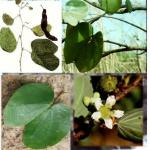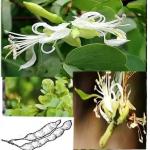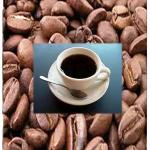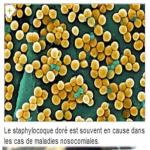EWE 36: Lemon and Palpitation Natural Treatment Cardiac Arrhythmia
Lemon and Palpitation Natural Treatment Cardiac Arrhythmia. Find out here why your heart beats too fast and the plants that heal heart palpitations
Please reach us at http://wa.me//+22967546677
Keywords Associated with Lemon and Palpitation
Palpitation definition, how to treat a heart palpitation, chili and palpitation, heart disorder, natural remedy heart disorders, honey and palpitations, ginger heart palpitations, cider vinegar and palpitations, natural solution for palpitations at bedtime, heart palpitations and stomach, palpitation natural treatment, palpitations lying position, garlic and palpitations, natural treatment for palpitations, fear and palpitation, honey and palpitation, arrhythmia, cardiac, natural treatment for cardiac, why my heart beats too much
Natural Treatment Cardiac Arrhythmia Cardiac Palpitation
What's the normal heart rate?
Under resting conditions, an adult's heart beats between 60 and 89 times per minute. With excitement and physical exertion, the rate of the heartbeat—pulse—increases. However, it slows during sleep and recovery. There are different forms of rhythm disturbances in which this normal rhythm is lost. The most common arrhythmias include premature beats, which are beats in addition to or outside the normal rhythm. They occur to some extent in every person, including a healthy heart. Treatment is needed only if this level is exceeded and symptoms develop
Please reach us at http://wa.me//+22967546677
What is Cardiac Palpitation?
Heart palpitations cause the sensation of the heart beating irregularly. Heartbeat stronger and faster than normal. It feels like the heart is beating too fast or too fast. Sometimes you think the heart wants to jump. There are many causes. Indeed, several factors may be responsible: intense exertion, pregnancy, emotional disturbances, smoking, alcohol, certain drugs, etc. Often harmless, however, they may be signs of heart disorders
What is Tachycardia?
Tachycardia comes from the Greek "takhys" (fast) and "kardia" (heart). The term refers to a heart rate that is too fast at rest, at more than 90 beats per minute in adults, a healthy heart beats between 50 and 80 times per minute. Thus, tachycardia is a disease that makes the heart beat too fast. It is often asymptomatic. When permanent, it can be detected during a routine health care visit. When it occurs transiently, it often goes unnoticed. Exercise, stress, or fear may speed up the heart, but it is a normal reaction or a point tachycardia
Learn more about DOCTISSIMO
What's the difference between palpitation and tachycardia?
Heart palpitations that occur in the chest are what doctors call tachycardia. Tachycardia manifests as heart palpitations. Depending on its cause, it may or may not be regular, permanent or not. Know the type of tachycardia you are suffering from to know whether to consult quickly or not. Thus, tachycardia is a rapid heart rate
How to avoid tachycardia? How To Prevent or Avoid Cardiac Palpitation?
To prevent tachycardia or avoid having heart palpitations, the following steps should be taken:
- Do not smoke;
- Do not drink too much alcohol;
- Eating a balanced diet;
- Avoiding stress;
- Engage in regular sports
- Tachycardia: People at risk
Some people are at higher risk, such as people who
- older people;
- whose parents have tachycardia;
- heart disease;
- suffering from congenital heart disease;
- taking too many exciters; coffee, alcohol, drugs
- suffering from angina;
- with a history of infarction.
- hypertensive
Causes of Tachycardia Causes of Heart Palpitations
Most commonly, tachycardia is sinus. The heart is not involved and its acceleration reflects its adaptation to certain situations:
- Physical exertion;
- Stress (anger, fear, anxiety...);
- The use of exciting substances (caffeine, alcohol, cannabis, certain drugs...).
- Pregnancy
- Dehydration;
- Fever;
- Hypoglycaemia;
- Anemia;
- Hyperthyroidism;
- Certain diseases of the adrenal glands (pheochromocytoma)...
- Then the cause must be addressed to see the heart return to its usual rhythm
Tachycardia Palpitation: Natural Treatment Cardiac Arrhythmia
NATURAL TREATMENT FOR CARDIAC ARRHYTHMIA
In arrhythmias, the heart rate is irregular. Affected people perceive these disorders as stumbling, misfiring, or a rapid heartbeat.
The heart is not only the engine of our blood circulation, but also a place of emotional sensations. Sometimes the heart can be felt clearly: it seems to jump with joy, but also suffer from sorrow and want to burst with fear. People who are particularly exposed to stress may have nervous heart problems. There are blows, tingling or stumbling and the heart rate is irregular. In addition, there is sometimes a feeling of fear and tightness in the chest as well as the feeling of a “bump” that seems to sit in the neck or behind the sternum. When stress is the trigger and there is no damage to the heart itself, we are talking about functional cardiac arrhythmias.
Herbal herbal herbal herbal herbal tea-based remedy for cardiac arrhythmia
The natural treatment we offer to cure cardiac arrhythmia is mainly composed of natural herbal teas. It is an effective, fast and lasting natural remedy that will allow you to reduce stress, regulate your heart rate, calm your nervous system and find normal blood pressure. It works quickly and lasts a long time, just follow the treatment to stop your heart rhythm. Click on the image below to discover the treatment
Please reach us at http://wa.me//+22967546677
How do cardiac arrhythmias develop?
The heart muscle contracts at regular intervals. The clock is the sinus node, which is located in the upper area of the right atrium of the heart. From there, electrical impulses reach the heart's muscle fibers through the conduction system. Cardiac arrhythmias can result from both disrupted electrical impulse formation and defective transmission within the stimulus conduction system.
What causes irregular heartbeats?
Cardiac arrhythmias may occur with nervousness, fear, stress, and excitement, for example. Likewise, consuming too many caffeinated beverages, such as cola, tea, or coffee, can cause a heart trip. Abnormal heart rhythms can also be a side effect of various drugs.
It is not uncommon for tactical disorders to occur as a result of febrile infections. In particular, myocardial inflammation can impair the conduction of stimuli into the heart. Other possible causes of irregular heartbeats are
- Heart attack
- Cardiac valve abnormality
- Hypertension
- Electrolyte disturbances (for example, lack of magnesium or potassium)
- Thyroid dysfunction
What are the symptoms of an irregular heartbeat?
Rapid heartbeats and stumbling are the most common symptoms that occur with an abnormal rhythm.
Some patients also complain of dizziness, drowsiness, and fatigue, but also of sore heart, heart stings, and chest tightness. In severe cases, fainting with brief loss of consciousness or even seizures may occur.
When should you go to the doctor?
Occasional premature beats occur in every person and rarely require treatment. Cardiac arrhythmias associated with symptoms such as tingling or chest pain, shortness of breath or dizziness should always be clarified - preferably by a cardiologist. Doctors listen to the heart with the stethoscope and also measure blood pressure and pulse. Electrocardiography (ECG) and echocardiography are also important diagnostic methods for determining arrhythmias.
Are you afraid when you see that your heart is beating and beating faster than it should and you don't know what to do to get rid of your palpitations as soon as possible? Fortunately, there are ways in which they can disappear as suddenly as they appeared.
-
As soon as you notice an irregular heartbeat, sit down and lift your legs up a little. Breathe deeply and slowly, allowing your belly to expand as you breathe in air. If you focus on this slow, deep breathing, your heart will calm down and your rhythm will return to normal.
- if palpitations persist, use the Valsalva method: squeeze the nose, close the mouth and try to exhale. Of course, you won't be able to force your body to push (almost as in the case of the birth of a child). The increase in blood pressure will cause the heart to "reset" and most likely return to normal heart rate. Like the previous method, coughing increases pressure in the chest.
- Take a few sips of cold water. It is not clear why this helps, but in some people, palpitations pass immediately. One theory is that water slightly pushes the esophagus, calming it down.
- You can also use cold water to spray your face, the shock helping you recover.
How to prevent palpitations?
eating fish, especially salmon and mackerel, that have high levels of omega-3 fatty acids
avoid overeating. If you force your body to digest a huge amount of food at a time, you need more blood to be pumped to your stomach, and your heart may suffer as a result.
Cut more caffeine, because in many people, it causes palpitations.
If you have regular palpitations, you are probably a stressed person who does not rest enough. Thus, they appear as an alarm signal triggered by the body. Try to take at least 30 minutes a day to meditate to relax your body and mind.
try to calm yourself with flavors, lavender being the most suitable.
sleep for at least 7 hours each night. Fatigue certainly causes palpitations.
Do at least 30 minutes of aerobics 3 or 4 times a week, whether it's walking, running, swimming, tennis or any other type.
warm up for at least 10 minutes before you move and lie down for another 10 minutes after that.
Many people who suffer from palpitations lack magnesium, so try to take 400 milligrams of magnesium twice a day.
It also uses coenzyme Q10, which is sold over the counter and helps regulate the heart rate, especially if you have heart disease.
If you do not eat too much fish, take 2 to 3 grams of fish oil, rich in omega 3, daily.
The amino acid taurine helps to regulate the electrical impulses in the heart. Take a supplement of up to 3 grams a day, this substance requires a prescription.
Many drugs taken at a pharmacy without the doctor's advice can cause palpitations. If their leaflet states that they should not be used in case of heart disease or high blood pressure, it is good to avoid them, even if you do not have heart problems to know.
some bronchodilators for asthma also increase the risk of palpitations;
Avoid pills that contain ma huang or ephedra. And antimistamines, such as claritin, should be avoided.
Forecast
Prognosis for cardiac arrhythmias varies widely, many minor arrhythmias are harmless, but other disorders are dangerous or even fatal, such as ventricular fibrillation. Immediate emergency treatment is needed here. Alternatively, cardiac arrhythmias may be kept at arm's length from usual treatment methods.
Lemon and palpitation
There is no doubt that honey is an excellent ally for the overall health of our body. This natural medicine has been widely used in natural medicine since ancient times, as we have written many times before.
One of its undisputed benefits is the health care of our heart. It works like a lotion to control your heart rate and avoid uncontrolled palpitations.
It is recommended to eat one tablespoon of honey per day on an empty stomach. In turn, before going to bed, we can drink the following mixture.
Components
½ glass of water
Lemon juice
1 tablespoon honey (25 g)
A method of preparation
Heat a cup of water and, when it gets warm, add the juice of half a lemon and a tablespoon of honey. Drink the medicine just before bedtime
How to Avoid Palpitations
Good habits or the way people deal with problems or various life situations can minimize palpitations.
Here are some tips to reduce or prevent them:
- Testing the drugs being taken.
- Inquire about a family history of heart disease, high blood pressure, or bleeding in the brain.
Do not smoke.
- Do not drink alcohol or coffee.
- Keep a diary of heart rhythms and when palpitations occur.
- Determine in which concrete situation the heart beats at a higher speed.
- Exercise at low intensity and under medical supervision.
- Reduce anxiety with relaxation techniques such as yoga or meditation.
- Breathe deeply.
- Have a healthy life and a balanced diet.
What to do in the face of an episode of palpitations?
Just as you feel your heart rate starting to become irregular, sit down and put your feet on the floor.
The second step is to breathe deeply, so that the abdomen widens as air enters your lungs.
In this way the beats will gradually return to normality. Other interesting techniques may be:
The Valsalva technique
This includes capping your nose, closing your mouth, and exhaling, even if you can’t get air out of it anywhere.
This will increase the pressure in the chest and will therefore allow the heart rate to recover.
Cough
The method is also used to increase the pressure in the chest. It is used by people with pre-infarction and it is very good for reducing palpitations.
Drinking cold water
When the esophagus receives water, it puts pressure on the heart. There are also people who wet their faces with ice water.
Natural treatments for palpitations
In addition to good habits it would be good for you to choose one of the following remedies to reduce palpitations.
Anise
It helps to treat any type of heart irregularity thanks to its calming properties. It is a highly aromatic plant, used in gastronomy but also in medicine in case of accelerated beats.
Try the 5 anise home remedies
It is recommended to consume 2 cups per day of anise infusion. You can find it in small bags in organic shops.
Squash leaves
Squash is a perfect remedy for treating palpitations. You will only use leaves, which have substances that calm the nervous system. You can also make an infusion.
Ingredients
1 handful of squash or zucchini leaves
1 liter of water
Preparation
Heat the water with the squash leaves. Once it has boiled, filter and then let it warm a little.
Add a tablespoon of the infusion to half a glass of water. Consume no more than 3 times a day
Grape
It is a natural and highly effective remedy that helps to prevent any heart problem because it thins the blood and helps the circulatory system.
This is better than having a glass of red wine with a meal, because with reason we enjoy all its properties in a natural way.
Honey
There is no doubt that honey is a fantastic ally for our health. This medicinal food has been used since ancient times and has many virtues.
It helps control the heart rate and prevents rapid beating. Honey has immediate effects on this vital organ.
It is recommended to eat a tablespoon on an empty stomach. When you are sleeping, you can also have this drink:
Ingredients
1/2 cup water (125 ml)
1/2 lemon juice
1 teaspoon honey (25g)
Preparation
Heat the water and add the lemon juice and honey when it is warm. Drink it before going to bed
Please reach us at http://wa.me//+22967546677
Click below to order clove oil
Book an appointment with lady feranmi on
Add a comment








